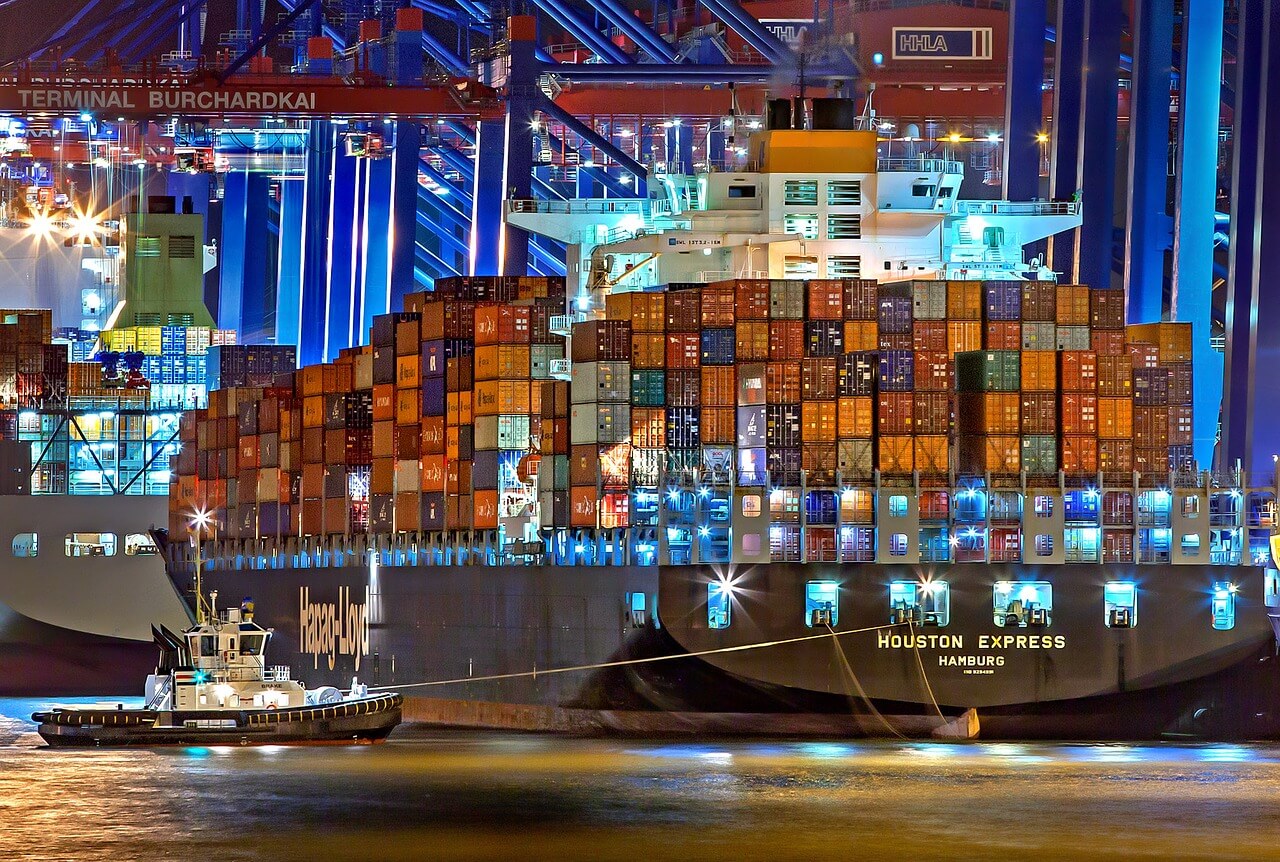

Shipping is the engine of the global economy, making up some 90% of world trade. That’s not easy to express in monetary terms, although experts estimate it at over $10 trillion a year. Maritime blockchain could transform this industry and bring multiple benefits to importers, exporters, transporters, ship owners, and even governments.
Blockchain technology has the potential to revolutionise the maritime industry and bring it into the 21st century. This complex ecosystem could greatly benefit from a robust digital platform to exchange data in real time.
In fact, the industry has been testing maritime blockchain applications since 2017. Some of the most important shipping companies, such as Maersk, Hyundai Merchant Marine, and Maritime Silk Road Platform, have teamed up with tech giants to create blockchain shipping systems to streamline maritime logistics.
One of the main benefits of introducing blockchain to the maritime industry is cutting down bureaucracy. For international shipments, companies and customs officials are forced to fill out over 20 different types of documents (most of them paper-based) to move goods from exporter to importer.
Most of these documents fail to provide real-time visibility and data quality, which often causes setbacks in financial settlements. These types of delays and inefficiencies are hard to accept in a data-driven, digital world.
An international consortium of shipping companies and European customs has tested a blockchain solution that eliminates printed shipping documents from the process. Not only did blockchain speed up operations, but this pilot proved how organisations in the maritime industry can save hundreds of millions of dollars annually.
Blockchain not only makes cargo checks faster, it also minimises the risk of penalties for customs compliance that are levied on customers.
Big data is having a huge impact on the industry, thanks to its potential to optimise operations, improve cybersecurity, and increase the overall efficiency of the supply chain.
However, data alone can’t change the way the maritime industry works. Companies, ports, and governments need to analyse the information to reap real benefits from the findings. This industry generates about 100-120 million data points every day. It was impossible for existing technologies to gather and analyse this amount of data efficiently.
Blockchain can help by placing the crucial data in one place and creating a unique platform for solution providers, ports, and agents that operate along the supply chain.
By tracking cargo in real time using blockchain technology, shipping companies and ports can plan land procedures ahead of time, speeding up terminal works and cutting down costs. They can also use data to make educated predictions that enhance their operations and increase efficiency.
The maritime industry includes multiple parties. Most of these communicate through lengthy paper chains, making it impossible to track shipments currently. This, combined with high transaction volumes, leads to little or no transparency in most processes.
Blockchains can secure the integrity of any record, reducing the risk of damaged or missing shipments. By replacing the old paper system, all parties involved have access to information, making it easier to plan operations efficiently and save on costs.
The information stored in the blockchains is impossible to delete or edit without leaving traces, so this transparency also increases security.
It reduces data entry errors and can improve fraud detection. Maersk’s collaboration with IBM, for example, also stipulates the development of means to streamline customs and security inspections, as well as tracking shipping containers for commercial purposes.
The blockchain-based Bill of Lading created by Maersk and IBM showed in early tests that administrative costs could be reduced by as much as 15% of the value of shipped goods, thanks to tracking shipping containers and eliminating paper documents.
It may seem like a small percentage, but that could create savings of $1.5 trillion globally.
Besides costs related to documentation, companies can also significantly reduce expenses caused by data entry errors, procedural delays, and discrepancies.
The maritime industry is still struggling with high costs and a high level of pollution. Blockchain technology can help with both issues, by cutting down administrative costs and providing environment-friendly solutions. All while protecting the industry against cybercrime and piracy, and ensuring a fairer deal for all parties involved.
Denver, Colorado, 24th February 2025, Chainwire
Denver, Colorado, 20th February 2025, Chainwire
Washington, D.C., 18th February 2025, Chainwire
Dubai, UAE, 27th January 2025, Chainwire
Those who enter the market at this time may be surprised to hear that Bitcoin…
George Town, Grand Cayman, 22nd November 2024, Chainwire